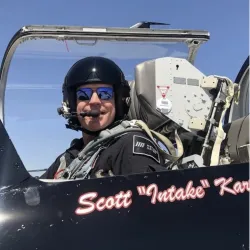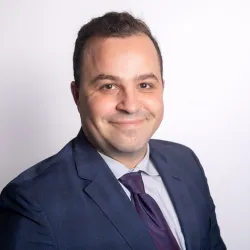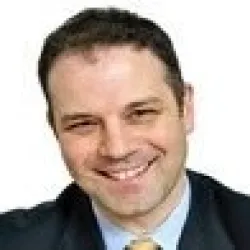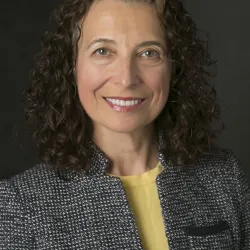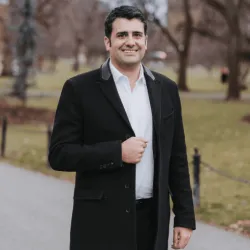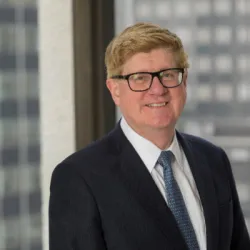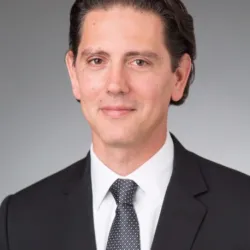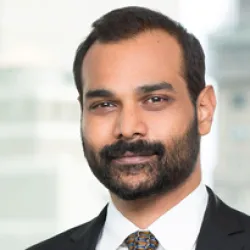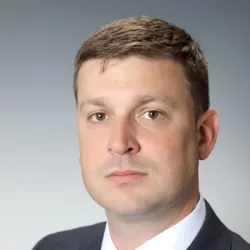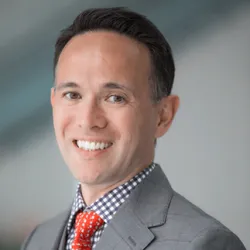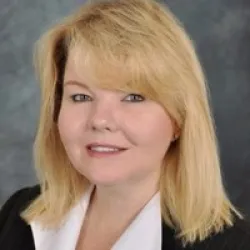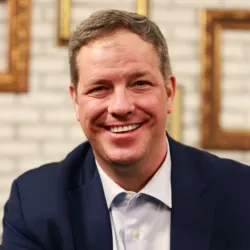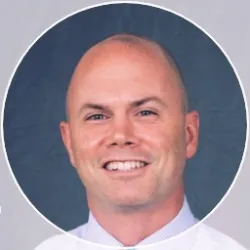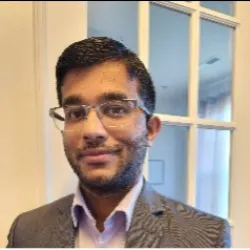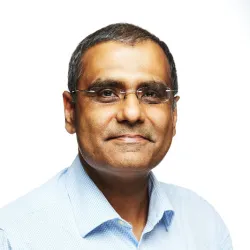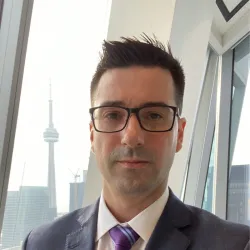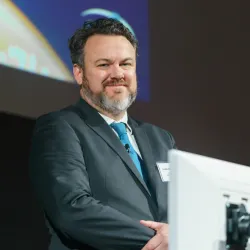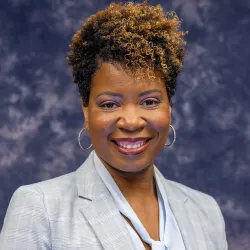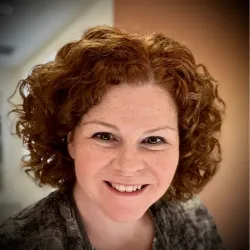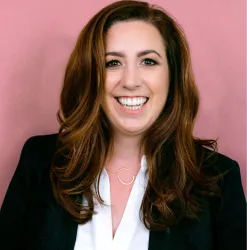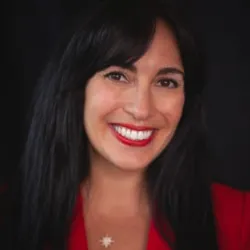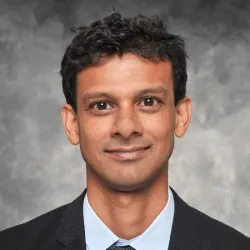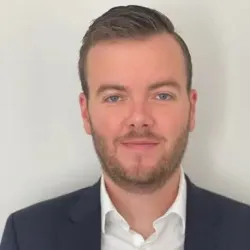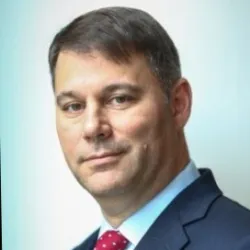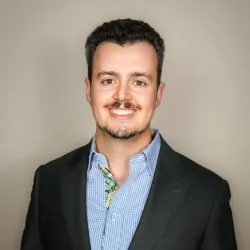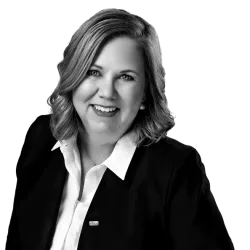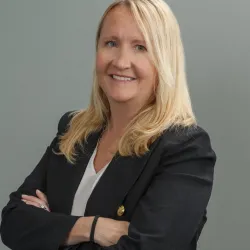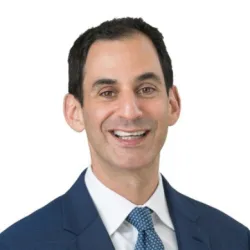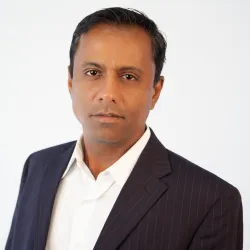Agenda Day 2
Risk Live North America - Nashville Day 2

Risk Live North America agenda
The Risk Live North America agenda showcases world-class speakers and industry leaders sharing critical insights on the trends affecting the market this year
Welcome back: morning keynotes
09:00 – 09:10
Welcome back remarks
09:30 - 10:00
Welcome back remarks from Duncan Wood, 9:00–9:10am
Duncan Wood is the London-based editor-in-chief of Risk.net. He was promoted to the role at the start of 2015, to lead the editorial reorganisation of the website and its print titles. Wood had been editor of Risk magazine since July 2011. He rejoined Risk as European editor in October 2009, having originally worked for Risk and Asia Risk in London and Hong Kong as a writer and researcher between 1998 and 2000.
In the intervening years, Wood was news editor for the Oliver Wyman-founded online start-up ERisk.com. He also worked freelance for six years while living in Germany, with his work featuring in Euromoney, Financial News, IFR, and The Wall Street Journal, as well as Risk magazine and its sister titles. Wood has written about derivatives and risk throughout his 17-year career in journalism. He is a Neal Awards finalist, and has won Incisive Media's journalist and editor of the year awards.
09:10 – 10:00
Mach-speed risk management
09:15 - 10:00
Room (Main D)
Welded wing, echelon or delta formation, aviators are trained and prepared to manoeuvre themselves and their aircraft into the best position to meet adversaries and challenges with a look to optimal results. Recent years have presented decision-makers and risk professionals with many challenges requiring quick thinking, long-term planning and preparedness.
This keynote will explore the keys to achieving the US Navy Blue Angels ‘culture of excellence’. Like landing a multimillion-dollar aircraft on the pitching deck of an aircraft carrier, it takes a team with an aligned culture of success to succeed. This keynote will highlight what it takes to mitigate risk in any operating domain, relying on the know-how and expertise gained through years of training from a seasoned naval aviator, Blue Angels and Top Gun: Maverick stunt pilot, Scott ‘Intake’ Kartvedt.
Scott is currently a professional pilot and President of the Blue Angel Foundation. He is an instructor and evaluator for United Airlines in Denver, Colorado, the number 5 pilot for the Patriot Jet Team, the only civilian jet demonstration team in North America, and was a stunt pilot in TOPGUN Maverick and was the aviation safety supervisor in Mission Impossible 8.
He lives in Colorado with his wife of 32 years, and his two sons are both naval aviators, following in their father’s footsteps.
10:00 – 10:30
Reset 2024: adapting to shifting realities as a CRO
10:45 - 11:15
Room (Main D)
Post-Covid-19, Silicon Valley Bank and amid continued volatility, what is the current operating environment asking of chief risk officers (CROs)? 2024 has tasked CROs and risk executives with many risk scenarios to overcome. What has the 2024 reset asked of risk leadership? What does success look like or require? Geopolitical, electoral and regulatory challenges are pervasive in the short term, but their long-term implications are likewise of great importance. The domino effect of macro issues directly impacts the bottom line, and tools, technologies and people are at the forefront of a solutions playbook that is expected to mitigate risk. This keynote will tackle these key themes, with a view to insights and CRO decision-making aimed at risk management success.
Richard Stein is the Chief Risk Officer of Citizens. He joined Citizens in May of 2023 as Executive Vice President and Senior Risk Advisor.
Stein serves on the Executive Committee and as CRO is responsible for defining and overseeing how we manage credit, market, operational, regulatory, compliance, and model risk at Citizens and for leading the second line of defense risk function.
Stein has over 25 years of risk, product and business line experience. He joined Citizens from Fifth Third Bancorp, where he most recently served as Executive Vice President and Chief Credit Officer with responsibility for enterprise-wide credit risk management. He also held risk management roles at Comerica and Bank of America over the course of his career.
Duncan Wood is the London-based editor-in-chief of Risk.net. He was promoted to the role at the start of 2015, to lead the editorial reorganisation of the website and its print titles. Wood had been editor of Risk magazine since July 2011. He rejoined Risk as European editor in October 2009, having originally worked for Risk and Asia Risk in London and Hong Kong as a writer and researcher between 1998 and 2000.
In the intervening years, Wood was news editor for the Oliver Wyman-founded online start-up ERisk.com. He also worked freelance for six years while living in Germany, with his work featuring in Euromoney, Financial News, IFR, and The Wall Street Journal, as well as Risk magazine and its sister titles. Wood has written about derivatives and risk throughout his 17-year career in journalism. He is a Neal Awards finalist, and has won Incisive Media's journalist and editor of the year awards.
10:30 – 11:00
Quick break
11:15 - 11:30
Thematic streams (continued)
11:00 – 11:40
Model risk management keynote
11:00 - 11:40
What is the current state of model risk management?
What roles and responsibilities should modelling practitioners expect?
The profession is changing: what must practitioners know?
Modelling remains at the forefront of risk management: the obstacles and hindrances to be aware of and avoid.
Steve Boras is the Head of Model Risk Management & Validation at Citizens Bank in Boston, focused on managing the model risk of the bank via validation of models, performance management and monitoring of outcomes, and serving as a sounding board for new and emerging modeling techniques and their respective appropriateness. Since joining Citizens in 2015, Steve has led several risk analytics functions, most recently heading the Risk Architecture Center of Excellence (covering loss forecasting model development for CCAR/DFAST and CECL, and PD, LGD, and EAD modeling for wholesale), as well as anti-money laundering modeling, macroeconomic scenario generation, and Data Science. Steve also holds leadership roles in enterprise risk, ESG and Inflation/Stagflation scenario analysis, and artificial intelligence and machine learning governance.
Rajiv Avacharmal
Corporate vice-president, Center for Data Science and Artificial Intelligence
New York Life Insurance
Rajiv Avacharmal is a leading expert in the field of AI/ML risk management, with a particular focus on generative AI. With a distinguished career spanning over 13 years, Rajiv has held senior leadership roles at several multinational banks and currently serves as the corporate vice president of AI and model risk at a leading Life Insurance Company. Rajiv's research interests lie at the intersection of AI/ML, risk management, and explainable AI.
Jon Hill, Ph. D., is a Subject Matter Expert in Model Risk Management and is an independent consultant to financial institutions.
Dr. Hill currently holds an appointment as adjunct Professor at New York University where he teaches a graduate course in Model Risk Management and Governance in the Tandon Department of Finance and Risk Engineering.
Jon has over twenty years of experience in various areas of quantitative finance. He has served as the head of model validation and model risk governance teams at several leading global investment banks.
In 2010, Jon recruited, trained and led a large model validation team responsible all firm wide market and operational Risk models at Morgan Stanley for seven years. Prior to Morgan Stanley, Jon was a member of a quantitative finance applications team at Solomon Smith-Barney (which later became Citigroup) for over ten years during which time he had the opportunity to perform comprehensive validations on a variety of different model classes.
Dr. Hill Holds a Ph.D. in biophysics and is a published author in the field of model risk management. Jon is a frequent speaker and chairperson at risk conferences in both the US and Europe.
George Soulellis currently serves as Enterprise Model Risk Officer for Freddie Mac with overall responsibility for model risk management in the firm. Previously, he served as Managing Director, Risk Analytics for Barclays Bank in the UK, overseeing risk model development and analytics. He has also held leadership positions in the risk management/modelling/analytics space at Citigroup, General Electric and JP Morgan Chase. His interests primarily lie in model uncertainty measurement, model risk under conditions of extrapolation, machine learning methods and modelling for capital requirements.
11:40 – 12:20
Model uncertainty, validation and stress-testing
11:40 - 12:20
How can you build reliable and robust validation into your models? What has recent stress-testing shown? Where are the gaps? What must we model for?
Arsa heads up the Retail Credit Risk Capital Model Validation group at U.S. Bank. His team covers CECL and CCAR / DFAST stress testing models for all Retail products including mortgage & HELOC, personal loans, credit card, and auto loans & leases. Prior to joining U.S. Bank, Arsa was Head of Model Risk Management at MUFG Union Bank. He has over 18 years of experience in the financial industry in various credit risk modeling and analytics roles across Wholesale and Retail lending portfolio; previously he was in Morgan Stanley, Bank of America, and Goldman Sachs. Arsa holds a BS in Computer Science and MS in Computational Finance from Carnegie Mellon University and has passed CFA Level III.
Alla Gil is co-founder and CEO of Straterix, which provides unique scenario tools for strategic planning and risk management. Prior to forming Straterix, Gil was the global head of Strategic Advisory at Goldman Sachs, Citigroup and Nomura, where she advised financial institutions and corporations on stress testing, economic capital, ALM, long-term integrated risk projections and optimal capital allocation.
Previously, he led Responsible AI teams at JPMorgan Chase & Co. and at PayPal. He also held various traditional quant and risk roles at major US banks, including Bank of America and Morgan Stanley. Kristof has a bachelor’s degree in math and a master’s degree in applied math from the Budapest University of Technology and Economics.
12:20 – 13:00
The never-ending Basel III endgame: what comes next?
12:20 - 13:00
The industry eagerly awaits the next round of Basel Committee on Banking Supervision updates. What will their impact be? Will we see a more conservative approach? What proposed rules and changes have been adopted? What do the ongoing delays mean for banks? What best practices and strategies, if any, can help navigate ongoing uncertainty?
Ron is (FMR) Head of credit, head of enterprise risk supervision at the Federal Reserve Bank of New York. He is currently US Board Risk Committee Vice Chair at Natixis bank. He provides board oversight of Natixis' US businesses including its branch, its Corporate and Investment Bank in New York, and its asset management group, Natixis Advisers in Boston.
- Evan G. Sekeris is chief model risk officer with Capital One, based in Washington, D.C. His areas of focus are stress testing, operational risk, and cyber risk. Evan’s background is in the measurement and quantification of credit risk and operational risk. His primary focus is currently on supporting institutions in building stress testing frameworks, developing their risk identification process and developing their model risk management frameworks.
- His projects include:
- Supporting a wide range of large global and regional banks with their CCAR frameworks, with a particular emphasis on their non financial risks.
- Developed a cyber risk quantification framework for a number of clients including a global financial institution and a fortune 250 industrial.
- Assessment and redevelopment of risk operating models and of 3LoD frameworks for various large global and regional banks.
- For a large internationally active US bank: supported major change of course in CCAR operational risk stress estimates a few months prior to submission in reaction to regulatory guidance.
- Supported the development of operational risk models for capital and stress testing purposes at more than 20 institutions worldwide.
- Previously, Evan was with MUFG, Oliver Wyman, and Aon in Columbia, Maryland, and assistant vice president of the Federal Reserve Bank of Richmond, where he created the center of excellence for operational risk which served the system needs for operational risk related matters. The team was in charge of the supervision of all AMA and CCAR banks in the US and developed the Fed’s CCAR model for operational risk.
- Evan earned a B.A. and M.A. in Economics from the Université Catholique de Louvain in Belgium. He received his Ph.D. in Economics from the University of California at Los Angeles.
- He has numerous publications in both academic and practitioner journals
- Evan is an editor of the Journal of Operational Risk
Kris Devasabai is the editor-in-chief for Risk.net. Previously, he was bureau head, US of Risk magazine and now he manages the editorial teams in APAC, EU and US. Prior to joining Risk, he covered hedge funds, asset management, cross-border investing and law for several publications. Kris holds a bachelor’s degree in law and government from the University of Manchester, and he completed his legal training at the Inns of Court School of Law in London. He was called to the bar of England and Wales in 2003.
13:00 – 14:00
Lunch and networking | CRO Network | Risk Leaders
13:00 - 14:00
Concurrent: CRO Network working lunch
Invitation only
An opportunity for CROs across North America to discuss their priorities in 2025.
This in-person meeting of the CRO Network is a closed-door, Chatham House discussion, offering members the chance to share experiences and take away practical advice from their peers. The discussion is moderated by Duncan Wood, global editorial director, Risk.net
Enquire here if you are a CRO and would like to join.
Brickyard A
___________________________________________________________________________
Concurrent: Risk Leaders’ Network focus group
Invitation only
Senior leaders to provide feedback on a new initiative, the Risk Leaders’ Network, which is a private, invitation-only series of meetings for senior decision-makers from across market, credit, liquidity, operational risk and asset-liability management functions to discuss the most pressing challenges. The insights gathered in the focus group will be used to develop and optimise this initiative.
Brickyard B
11:00 – 11:45
Innovations in third- and fourth-party risk management
11:00 - 11:45
Innovative approaches to third-party documentation and control reviews.
The role of artificial intelligence in transforming third-party risk management.
Overcoming common obstacles in vendor-monitoring practices.
Managing concentration risks with major cloud providers.
Adapting to recent interagency guidance on third-party risk management.
Prior to joining Risk, he reported on the futures and foreign exchange industries for Dow Jones' Financial News and the Euromoney group of publications. Osborn holds a bachelor's degree in English literature from the University of Warwick.
Chris is a member of Milliman’s Cyber Risk Solutions (CRS) practice group. The practice delivers a portfolio of risk consulting services, such as enterprise risk design, cyber risk assessment and quantification, test and build projects, operational risk assessments, enterprise risk management (ERM) education and training, and ERM technology evaluation. The CRS practice uses diagnostic consulting strategies to understand an organization’s enterprise risk goals and challenges and then customize solutions to deliver required business results.
EXPERIENCE
Chris has 15 years of professional experience. His experience includes work in the banking, insurance, capital markets and card sectors helping clients assess and mitigate risk.
Prior to joining Milliman, Chris was a Senior Manager in Accenture’s Finance and Risk Management Consulting practice, delivering work for global financial service clients. Additionally, Chris served as an active duty Naval Officer and has multiple overseas deployments.
Professional experience and subject matter advisory includes:
- Cyber Security metrics and governance
- Financial Service Regulatory and Compliance initiatives
- Risk Management
- Corporate and Risk Governance
- Surveillance
- Financial Services operating model and cost reduction
- Regulatory remediation and responses
- Legal department risk and optimization
- Leading large cross functional projects and teams
EDUCATION
- BS Political Science, University of Wisconsin–Madison
- MBA, University of Chicago – Booth School of Business
As Vice President of Operational Risk, Michael leads the first line of defense risk management for financial crimes, privacy and information security, business resiliency, vendor management and compliance with regulatory requirements. Mike and his team establishes the risk direction by aligning the Multifamily Governance Framework with the business operating model. He continually improves governance by understanding the multifaceted drivers that effect risk environment.
Jeannie Pumphrey
Director, and head of third-party and operational risk management
Mitsubishi UFJ Financial Group
Dipen Nayak is the head of non-financial risk at the General Bank of Canada, where he leads risk management strategies across operational risk, cybersecurity, third-party risk, and business continuity planning. He also plays a key role in overseeing the bank’s open banking initiatives, ensuring the secure management of data and the implementation of robust risk frameworks as the financial industry evolves toward more transparent and customer-centric models. With broad experience spanning financial services, government, and the automotive industry, Dipen has held senior leadership roles at organisations such as Infrastructure Ontario, Canada Mortgage and Housing Corporation, and Mercedes-Benz. His approach integrates risk management into strategic decision-making while also focusing on crisis management to ensure organisational resilience in the face of shifting regulatory and operational landscapes.
11:45 – 12:30
Addressing IT and multiple-domain disruption risks in the banking sector
11:45 - 12:30
- Understanding the subdivision of emerging risks and their specific impact on US financial institutions.
- Examining the consequences of IT disruptions within the context of US digital banking and customer service.
- Strategies for US banks to enhance digital resilience.
- The outlook for IT disruption risks in the US financial sector, and effective management practices.
Mark Hofberg is an accomplished risk management leader with over 20 years of industry experience. He previously served as a leader in a variety of audit, risk and compliance management functions within retail, wealth, and investment banking at Bank of America. Mark currently serves customers as Risk Solutions Executive within ServiceNow’s financial services division. Prior to joining ServiceNow, Mark served as RSA Archer’s field risk officer for US and Canada.
Mark has held various senior leadership roles at Accenture, Bank of America, RSA and now guides customers on their integrated risk transformation journeys with ServiceNow. He is passionate about the evolution of risk management, emerging risks, and the utilization of technology to optimize business outcomes. Mark has co-authored white papers on impacts of technical debt, digital risk, and has a patent on optimization of technology decisions (US 8,321,363 · Issued Nov 27, 2012) along with a patent pending process risk prioritization model. Mark holds a bachelor’s degree in engineering from North Carolina State University.
With 14 years of Financial Services industry experience, Rob currently leads the Internal and External Loss Data team within Operational Risk Management at PNC. Rob has developed new risk frameworks and identifies and provides risk management and control solutions to address high profile and complex problems. Rob has overseen acquisition duties including integration of enterprise-wide risk data. Prior to joining PNC, Rob spent 7 years at BNY Mellon with positions in Asset Servicing and Global Markets. Rob has a keen eye for process improvements and automation using technology in the risk management and data analysis space.
Rob has held leadership roles at both PNC and BNY Mellon and holds a BSBA with a concentration in Economics from Robert Morris University and an MBA with a concentration in Management Information Systems from Point Park University.
Badri Iyengar
Senior vice president, global technology compliance and operational risk
Bank of America
Badri is a forward-thinking operational risk executive with over 15 years of experience in the financial services industry. As a senior vice president, operational risk executive, Badri is accountable for the effective execution of the bank’s operational risk programme for the global technology organisation. As part of this role, he and his team provide oversight of key operational risks including data risk, cybersecurity, resiliency, technical change across global technology CIO organisations. Badri has a proven track record of developing and implementing comprehensive risk management strategies that safeguard organisational assets, enhance regulatory compliance, and optimise operational efficiency. Prior to this role, Badri served as the operational risk lead for the consumer and small business organisation with a focus on implementing the operational risk programme and strategies across consumer products and services, including but not limited to, credit card, ATM/online banking, first mortgage and home equity. Badri joined Bank of America in 2010 in the global risk management organisation and has since then served on multiple credit and operational risk roles. He received his B.S. degree in electrical engineering from VIT University, India and earned his Master’s degree in mathematical finance from University of North Carolina, Charlotte.
Viral Sanghvi
Director, application production support for global banking, ALMT and functions, Americas
BNP Paribas CIB
Viral started his career at Tata Consultancy Services, providing core banking solutions to various foreign banks.
He then joined BNP Paribas in India in 2008 to set up a proof-of-concept offshore application production support (APS) team. He had several short- and medium-term assignments between 2008 and 2014 in Paris and the US, after which he moved to Montreal in 2014 to set up the nearshore APS team for client management IT. Viral then moved to the US in 2016 to set up the APS team for the newly formed Intermediate Holding Company for BNP Paribas USA.
In 2022, he was appointed as the head of APS for global banking, ALMT & functions Americas. This team is key as it provides the full suite of production support services for two vital business lines (US dollar clearing and ALM treasury) for the region, including clearing US dollars for the entire bank globally.
Outside his day job, Viral is the co-chair of the Asian Employee Resource Group (ERG) at BNP Paribas, and is a member of the Americas IT Operations Council. He also mentors students from non-privileged backgrounds at the City University of New York. He enjoys hiking, motor sports, reading, and is now learning to play golf.
12:30 – 13:00
Navigating change management in the financial sector
12:30 - 13:00
- Key challenges and strategies in managing technological and regulatory changes in finance.
- Lessons learned from high-profile case studies on the consequences of ineffective change management.
- Best practices for integrating risk management into change processes to safeguard against operational and reputational risks.
- Approaches for ensuring change initiatives align with business objectives and regulatory standards.
Steve Boras is the Head of Model Risk Management & Validation at Citizens Bank in Boston, focused on managing the model risk of the bank via validation of models, performance management and monitoring of outcomes, and serving as a sounding board for new and emerging modeling techniques and their respective appropriateness. Since joining Citizens in 2015, Steve has led several risk analytics functions, most recently heading the Risk Architecture Center of Excellence (covering loss forecasting model development for CCAR/DFAST and CECL, and PD, LGD, and EAD modeling for wholesale), as well as anti-money laundering modeling, macroeconomic scenario generation, and Data Science. Steve also holds leadership roles in enterprise risk, ESG and Inflation/Stagflation scenario analysis, and artificial intelligence and machine learning governance.
Emily Nachlas is the Chief Risk Officer of Western Alliance Bancorporation.
In this role, Ms. Nachlas brings nearly 25 years of experience in financial services risk management to oversee Western Alliance Bancorporation’s second line of defense risk management teams and processes. Since joining the bank in 2019, she has evolved the organization’s risk management strategy, organizational risk framework, and infrastructure commensurate with its size and complexity as it crossed the regulatory threshold beyond $50 billion in assets. She provides overall leadership, vision, and direction for enterprise risk, credit risk, financial risk, strategic risk, compliance, BSA/AML, operational risk, credit review, and model risk management.
Before joining Western Alliance Bank, Ms. Nachlas specialized in developing risk management programs as Executive Vice President and Director of Enterprise Risk Management at IBERIABANK in New Orleans and previous risk management positions at HSBC, Amegy Bank and Hibernia National Bank. She holds a Bachelor of Science degree in Management from the A.B. Freeman School of Business at Tulane University and a Master of Business Administration degree from the University of New Orleans.
Within the banking industry’s risk management discipline, Ms. Nachlas serves on several boards and councils, including the National Mid-Tier CRO Council of the Risk Management Association, as well as the local Phoenix RMA chapter. She is a frequent speaker and presenter at industry conferences. In 2022, she was named among Arizona’s Most Influential Women in Business. As a committed ally, she is the Executive Sponsor of PRIDE@Work, the BRG for Western Alliance Bank’s LGBTQIA people and allies.
Ms. Nachlas lives in Phoenix with her husband and two children. As a volunteer with Arizona Small Dog Rescue, she has fostered more than 50 small dogs since 2016, ensuring they have safe forever homes.
13:00 – 14:00
Lunch and networking | CRO Network | Risk Leaders
13:00 - 14:00
Concurrent: CRO Network working lunch
Invitation only
An opportunity for CROs across North America to discuss their priorities in 2025.
This in-person meeting of the CRO Network is a closed-door, Chatham House discussion, offering members the chance to share experiences and take away practical advice from their peers. The discussion is moderated by Duncan Wood, global editorial director, Risk.net
Enquire here if you are a CRO and would like to join.
Brickyard A
___________________________________________________________________________
Concurrent: Risk Leaders’ Network focus group
Invitation only
Senior leaders to provide feedback on a new initiative, the Risk Leaders’ Network, which is a private, invitation-only series of meetings for senior decision-makers from across market, credit, liquidity, operational risk and asset-liability management functions to discuss the most pressing challenges. The insights gathered in the focus group will be used to develop and optimise this initiative.
Brickyard B
11:00 – 11:45
I am who AI say I am
11:00 - 11:45
- Identity theft, selling personal information on the dark web and phishing attacks.
- Machine learning algorithms to gather personal information from various sources such as social media and public records to create detailed profiles of victims for identity theft purposes.
- Artificial intelligence (AI)-powered bots carry out phishing attacks, impersonate individuals and manipulate financial systems by generating realistic-looking emails and messages to deceive victims.
- Anti-money laundering and counterterrorism financing failures.
- Business-to-business daily transactions.
Chris McMillon
Vice-president/director, information security identity and governance
AllianceBerstein
Before joining Capital One, Sanjay was a founding member of an award-winning insider threat programme at a large federal intelligence organisation. besides leading the development of the enterprise data stack there, he spearheaded the implementation of innovative identity management system and led his teams in the application of AI/ML algorithms for anomalous behaviour detection. Sanjay is passionate about fostering high-performing, multi-disciplinary ethical teams and driving positive cultural transformation.
Adam Ennamli is the current chief risk officer at General Bank of Canada, overseeing the evolution and management of all enterprise-wide risks. He leverages over 15 years of risk management, compliance and operations leadership experience at major financial and technology institutions globally, including Thomson Reuters, Canada Mortgage and Housing Corporation, Morgan Stanley and National Bank of Canada.
In his prior roles, Adam spearheaded the development of risk management, governance and compliance programmes driving strategic decision-making and prudent growth. He holds an MBA from HEC Montreal as well as multiple ESG certifications, complementing his expertise across ERM, cyber security, operational resilience and technology. Adam is recognised for enabling companies to build durable competitive advantages through world-class capabilities.
A seasoned professional with 15 years of experience in model development, model risk management and model validation, specialising in anti-money laundering (AML)/Bank Secrecy Act (BSA) Models, fraud detection models, financial crime models, credit risk models, and customer segmentation and behaviour analysis models. Expert in leveraging machine learning (ML) and artificial intelligence (AI) methodologies to enhance the accuracy and reliability of models within the compliance and fraud domains.
11:45 – 12:30
Strengthening business continuity, disaster recovery and TPRM in the US regulatory framework
11:45 - 12:30
- An overview of the US regulatory landscape on business continuity and disaster recovery, and third-party risk management (TPRM).
- Interplay of the risks affecting US financial institutions’ operational resilience, and geopolitical, cyber and third-party risks.
- Best practices for US financial institutions to prepare for and comply with heightened regulatory expectations, and the potential for increased penalties.
Justin McCarthy has worked in risk, complinace and leadership roles in many firms, including Bank of America Merrill Lynch, PwC, Ulster Bank (RBS/NatWest) and with the Irish financial regulator at the Central Bank of Ireland. This work has allowed him to see the changes in risk management and compliance since through and beyond the recent global financial crisis. His work on the PRISM risk-based supervision framework with the Irish regulator included exposure to banking, funds and insurance risk practices as well as the quantitative work done on the related impact models and the challenge in feeding valid financial data to these models.
McCarthy is chief executive officer of the Professional Risk Managers' International Association (PRMIA). This is a global risk management professional body and education organization for risk managers based in the United States with a network of over 45,000 in over 60 chapters around the world. Previous to this, he spent several years as a senior volunteer for PRMIA, serving on many committees and ultimately chairing the global board.
He has a BSc in computer science from University College Cork and an MBA from the Michael Smurfit Graduate School of Business at University College Dublin. He has a corporate director certificate from Harvard Business School.
Tamara Culler
Director for governance and operational risk policy
Office of the Comptroller of the Currency
In this role, Ms. Culler manages the team responsible for establishing governance and operational risk policy. She addresses emerging issues in corporate and risk governance, bank management, and operations, and represents the OCC on various interagency working groups, committees, and forums. She assumed these duties in June 2022. Before her current role, Ms. Culler served as the senior advisor to the senior deputy comptroller for large bank supervision, where she was an expert advisor on a broad range of policies, procedures, and special projects affecting the large bank portfolio, specific institutions, and OCC operations. Before that, Ms. Culler served in various supervision roles in large bank supervision and midsize and community bank supervision. She was also a member of the agency’s inaugural enterprise risk management team. Ms. Culler began her OCC career in 2005. She was commissioned as a national bank examiner in 2010 and attained the federal thrift regulator certification in 2014. Ms. Culler is a graduate of Loyola University New Orleans with a bachelor’s degree in business administration and a concentration in finance.
Christy Riccardi is the Head of Cyber Risk Management for Capital One. Christy leads the identification, prioritization, and mitigation of cyber risk through the management of metrics, data analytics, risk assessments and evaluations, and cyber capability analysis. In a prior role at Capital One, Christy led risk and remediation management functions in support of Capital One’s Lines of Business, ensuring cyber risks and vulnerabilities are managed, remediated, and dispositioned appropriately. Prior to Capital One, she served as the Cybersecurity and Infrastructure Security Agency (CISA) Region IX Director. As Regional Director, Christy led regionally-based security experts and analysts to provide advice to industry and government on cybersecurity, information sharing and protection, data tools and technology, and infrastructure resilience. There, Christy led cybersecurity and physical security outreach and operations in support of U.S. election infrastructure. Christy’s previous roles include Deputy Chief of Staff for the Department of Homeland Security Office of Infrastructure Protection; Senior Systems Engineer and Software Engineer.
Christy earned a Master of Art in Security Studies from the Naval Postgraduate School for Homeland Defense and Security Studies. Christy also holds a Bachelor and Master of Science in Computer Science.
12:30 – 13:15
Sanctions and export controls: strategic tools in global policy and compliance
12:30 - 13:15
- Understanding sanctions as both a compliance requirement and a strategic tool of foreign policy.
- Analysis of the global co-ordination in sanctioning Russia and the implications for international trade and legal frameworks.
- Strategies for financial institutions to assess and mitigate direct and indirect exposures to sanctions and export controls, ensuring compliance amid rapidly changing global events.
Diana G. Iskelov is director and senior counsel at BNP Paribas, where she advises the Bank on US sanctions, export controls, anti-money laundering and anti-corruption matters; regulatory and legal investigations; and public policy and regulatory affairs topics, including the Lobbying and Disclosure Act.
Prior to joining BNP Paribas, Diana was an associate at the law firm Sullivan & Cromwell LLP in New York. Her practice involved representation of multinational financial institutions and other companies in regulatory, government, and internal investigations conducted in the United States and abroad involving economic sanctions, anti-corruption, anti-money laundering, tax fraud, and insider trading allegations, as well as a wide variety of civil litigation matters.
Diana graduated with honours from the Johns Hopkins University, and holds an M.A. from the Paul H. Nitze School of Advanced International Studies of Johns Hopkins University and a J.D. from the University of Pennsylvania Law School. She is a member of the New York State Bar and the District of Columbia Bar.
Himamauli (Him) Das
Former acting director
Dept of the Treasury/Financial Crimes Enforcement Network
13:00 – 14:00
Lunch and networking | CRO Network | Risk Leaders
13:00 - 14:00
Concurrent: CRO Network working lunch
Invitation only
An opportunity for CROs across North America to discuss their priorities in 2025.
This in-person meeting of the CRO Network is a closed-door, Chatham House discussion, offering members the chance to share experiences and take away practical advice from their peers. The discussion is moderated by Duncan Wood, global editorial director, Risk.net
Enquire here if you are a CRO and would like to join.
Brickyard A
___________________________________________________________________________
Concurrent: Risk Leaders’ Network focus group
Invitation only
Senior leaders to provide feedback on a new initiative, the Risk Leaders’ Network, which is a private, invitation-only series of meetings for senior decision-makers from across market, credit, liquidity, operational risk and asset-liability management functions to discuss the most pressing challenges. The insights gathered in the focus group will be used to develop and optimise this initiative.
Brickyard B
Roundtable breakouts and fireside chat
14:00 – 15:00
Stream
S&P Invitational
Diversifying risk frameworks: how asset managers are adapting amid a turbulent market landscape
Invitation-only roundtable
14:15 - 15:15
Room (Brickyard A)
- The impact of an uncertain rate environment, continued volatility, sticky inflation and recession fears.
- The emergence of new risk factors: integrating climate risk considerations into the risk management framework.
- The future of liquidity risk management based on lessons learned from recent events.
- The implications of artificial intelligence on investing strategies and how this may change risk management.
- Risk management of upcoming macro and geopolitical events, especially the impact of quantitative tightening and the US election.
Luke Armstrong is Head of Buy Side Risk at S&P Global Market Intelligence. He has a decade of experience in buy side risk management working at CQS and Bluebay Asset Management. As product manager, he is responsible for the design and build of S&P Global Market Intelligence's next generation buy side risk management platform. Luke holds a BEng in Aerospace Engineering with first class honours from the University of Southampton.
Stream
S&P Credit Risk Invitational
Managing CCR and XVA in volatile markets
Roundtable
14:15 - 15:15
Room (Brickyard B)
Join us for an, interactive roundtable where we will learn from recent crises, and delve into the implications of Basel’s new consultation paper. We will discuss the affects of these on counterparty credit risk (CCR) and valuation adjustments (XVAs).
Discussion points will include:
Learn from the Past: Discover the impact of global events such as the pandemic, geopolitical conflicts, and high-profile defaults (like Archegos) on CCR.
Basel’s Guidance: Uncover how Basel’s latest consultation paper (D574) provides valuable insights for enhancing risk strategies.
Best Practices Implementation: Applying Basel’s recommendations to effectively manage concentration risk and wrong-way risk
Alberto Micucci, is the Product Owner for S&P Global Market Intelligence’s Risk as a Service guiding the development of the Counterparty Credit Risk, XVA and Traded Market Risk solutions. Alberto has over 15 years of experience both at financial institutions and vendors. Alberto has a M.Sc. in Engineering from Politecnico di Milano.
Stream
Roundtable thematics
Thematic Q&A and fireside chat (attendee select)
14:00 - 15:00
Room (Main D)
Two 30-minute interactive discussions led by industry experts:
2:00 (Start)
- The critical role of clean and accurate data in digital transformation Q&A
Speaker: Jeffrey Missimer, Head of Americas, strategy, Parameta Solutions
2:30 (Start) (Main Stage)
- Artificial intelligence regulation fireside chat
Co-speaker: Nick Bray, Head of sales in the Americas, Cube
Co-speaker: Michael Gibbs, Chief executive officer, SureStep
Michael is the Founder and President of SureStep – a global systems integrator specializing in GRC automation and reporting solutions.
Since 2007, SureStep has successfully completed projects across finance, manufacturing, transportation, natural resource and other industries. Those clients have ranged from 2-person risk and compliance teams to those having over 65,000 participants in their GRC programs. As the practice lead at SureStep, Mike guides clients to best practices and ensures they optimize their GRC technology investments for the long term.
SureStep provides solutions from ServiceNow, Workiva and IBM as well as GRC managed services. Mike’s team works from offices in Hong Kong and Singapore in addition to their New York and Toronto locations.
Nick is Head of Sales in the Americas at CUBE, a leading global RegTech provider that automates the capture of regulatory data and regulatory changes through the use of Artificial Intelligence and Machine Learning. Nick has spent 17 years in Governance Risk and Compliance initially in the banking industry with Bank of Montreal and later shifted focus to product management and business development at Thomson Reuters/Refinitiv.
Industry streams
15:00 – 15:45
Stream
Industry Experiential Streams
Making the band in Music City
15:00 - 15:45
Room (Main D)
What it takes to craft and grow successful and dynamic teams:
- What does it take to build a successful team?
- How can teams and organisations thrive with greater demands on efficiencies?
- Rethinking team building, what does a successful team dynamic require?
- Where do things go wrong and how do you pivot for success?
Steve Boras is the Head of Model Risk Management & Validation at Citizens Bank in Boston, focused on managing the model risk of the bank via validation of models, performance management and monitoring of outcomes, and serving as a sounding board for new and emerging modeling techniques and their respective appropriateness. Since joining Citizens in 2015, Steve has led several risk analytics functions, most recently heading the Risk Architecture Center of Excellence (covering loss forecasting model development for CCAR/DFAST and CECL, and PD, LGD, and EAD modeling for wholesale), as well as anti-money laundering modeling, macroeconomic scenario generation, and Data Science. Steve also holds leadership roles in enterprise risk, ESG and Inflation/Stagflation scenario analysis, and artificial intelligence and machine learning governance.
Allen He joined FCLTGlobal after getting his master’s degree in finance from the MIT Sloan School of Management. Prior to that, he worked at The Brattle Group, an economic consulting firm, as a senior research analyst in litigation and finance. While at Brattle, Allen worked on a variety of projects across the finance, utilities, and industrials sectors, where he led data modeling work in corporate valuations and derivatives hedging. Recently, Allen has worked on projects focused on risk management – including a currency risk prediction model as part of a joint research practicum between MIT and a global asset management firm.
Allen holds a B.A. in Math and Economics from Cornell University and a MS from MIT.
Stream
Industry Experiential Streams
AI tech showcase and exercise: how AI is being deployed today
14:45 - 16:00
Room (Main E)
A dedicated interactive exercise, leveraging technology to address and showcase one or two major industry issues: providing participants with a real-time and practical view into risk assessment, decision-making and mitigation.
Max is responsible for defining the next generation of multi-asset investment processes for Franklin Templeton Investment Solutions. Previously, he was president and chief investment officer of the start-up asset manager AlphaTrAI, where he harnessed artificial intelligence to build alternative strategies for traditional and digital assets. Before that, he was head of asset allocation at the asset management arm of Pacific Life Insurance for seven years. Prior to Pacific Life, Max was a portfolio manager with Mellon Capital’s multi-asset group and a founding member of Coefficient Global, a quantitative macro hedge fund. Outside of work he’s an amateur racecar driver.
Mr. David Lin is the Founder and CEO of Linvest21.AI, a FinTech firm specialized in autonomous Investment Platform – AlphaCopilotTM, based of Vertical AI.
Prior to founding Linvest21, Mr. Lin was a Managing Director of JPMorgan Asset Management (AM) since 2001, and the Chief Technology Officer of its global Investment Platform. In addition to his AM-wide responsibilities, David was the head of Technology for Global Equities, Multi-Asset Solutions and Global Beta. Before that, Mr. Lin served as the Chief Technology Officer for Global Quantitative Research and Global Research Technology for Asset and Wealth Management. Prior to joining JPMorgan, David was the head of Software Development at CNBC.com.
Over the years, Mr. Lin led the teams won a significant number (24) of Industry Awards and Recognitions in the field of Financial Technology. He is also the author of 3 provisional patents in the field of Applied AI.
Mr. Lin holds a Bachelor degree in Computer Science from University of Toronto, and a MBA from Columbia University.
Strategic and visionary PhD from MIT with over 10 years of quantitative research leadership experience, in multi-asset environments with broad experience covering equity, fixed income and hedge funds. Responsible for developing proprietary models and analytical tools for asset allocation, portfolio construction, performance attribution, financial planning and risk management. Ability to set priorities and manage teams. Excellent organizational, interpersonal, written and verbal communication skills with the ability to present complex information to a diverse audience.
Afternoon closing keynotes
15:45 – 16:15
Reset, rejoin and refreshment break
15:45 - 16:15
Participants can grab a quick refreshment, reset and rejoin the afternoon keynotes in the main stage areas.
16:15 – 16:45
Closing afternoon keynote: Global projections 2025
16:55 - 17:25
Room (Main D)
Senior industry practitioners share their top predictions for the year ahead on topics ranging from the economic outlook to regulatory change and technology breakthroughs. Can the US avoid a recession? Will the artificial intelligence hype become a reality? What do regulators have up their sleeves? Find out what some of the leading minds in the industry have to say.
Aimee Hamilton, Chief Risk Officer, is responsible for FirstBank’s enterprise risk management activities and oversees consumer compliance, anti-money laundering regulations, physical security, information security, loan review and risk management.
Aimee has more than 30 years of experience in financial risk management with organizations ranging from $800 million to more than $50 billion in asset size. She most recently served as Chief Risk Officer at Cadence Bank, based in Houston, Texas.
Aimee is a graduate of Louisiana State University with a Bachelor of Science in Accounting. Additionally, she is a Certified Public Accountant (licensed in Louisiana), Certified Internal Auditor and Certified Regulatory Compliance Manager.
Allison’s has extensive experience in financial services legal, compliance, risk, and marketing compliance teams, working on regulatory matters, disclosure design, and data validation and conversions. She has previously held management consultant, risk management, controls governance, and compliance positions at large financial firms.
Long version
Allison currently serves as the Head of Compliance for Saifr within Fidelity Labs. She previously was a management consultant focusing on data validation and conversions, disclosure design, and regulatory expertise for the Saifr team.
Allison has extensive experience in the financial services industry, having held various legal, compliance, risk, and marketing compliance positions. Most recently, she was a Vice President for State Street Global Marketing, where she led the Risk Management and Controls Governance Program and advised on marketing workflow tool management. Allison also held various senior compliance and marketing manager positions at Columbia Threadneedle, State Street, MFS, and Fidelity Investments.
Allison received her MBA in Marketing and International Business from Suffolk University and her BA in Political Science and Psychology from Wellesley College. She also attended Dartmouth College and served as a member of the Board of Directors and Chairperson for Suffolk University’s Sawyer School for Business.
As a Chief Risk Officer, macro strategist, and innovative portfolio leader, he brings a record of success and expertise in building and leading cutting-edge capabilities, products, and strategies for financial organizations operating at the highest levels of global business. John excels at translating complex financial concepts for a broad audience, building innovative, first-of-kind products, and servs as an influential thought leader, speaker, and firm representative across the industry. Combining a hands-on approach to platform development with a deep understanding of a range of strategies (Stat Arb Equity Long/Short, Macro, CTA, Distressed Credit, Event-Driven) - he brings a creative mindset that enables me to harness emerging technologies in a way that has consistently elevated the firms I represent to the forefront of highly competitive markets.
Kris Devasabai is the editor-in-chief for Risk.net. Previously, he was bureau head, US of Risk magazine and now he manages the editorial teams in APAC, EU and US. Prior to joining Risk, he covered hedge funds, asset management, cross-border investing and law for several publications. Kris holds a bachelor’s degree in law and government from the University of Manchester, and he completed his legal training at the Inns of Court School of Law in London. He was called to the bar of England and Wales in 2003.
- Evan G. Sekeris is chief model risk officer with Capital One, based in Washington, D.C. His areas of focus are stress testing, operational risk, and cyber risk. Evan’s background is in the measurement and quantification of credit risk and operational risk. His primary focus is currently on supporting institutions in building stress testing frameworks, developing their risk identification process and developing their model risk management frameworks.
- His projects include:
- Supporting a wide range of large global and regional banks with their CCAR frameworks, with a particular emphasis on their non financial risks.
- Developed a cyber risk quantification framework for a number of clients including a global financial institution and a fortune 250 industrial.
- Assessment and redevelopment of risk operating models and of 3LoD frameworks for various large global and regional banks.
- For a large internationally active US bank: supported major change of course in CCAR operational risk stress estimates a few months prior to submission in reaction to regulatory guidance.
- Supported the development of operational risk models for capital and stress testing purposes at more than 20 institutions worldwide.
- Previously, Evan was with MUFG, Oliver Wyman, and Aon in Columbia, Maryland, and assistant vice president of the Federal Reserve Bank of Richmond, where he created the center of excellence for operational risk which served the system needs for operational risk related matters. The team was in charge of the supervision of all AMA and CCAR banks in the US and developed the Fed’s CCAR model for operational risk.
- Evan earned a B.A. and M.A. in Economics from the Université Catholique de Louvain in Belgium. He received his Ph.D. in Economics from the University of California at Los Angeles.
- He has numerous publications in both academic and practitioner journals
- Evan is an editor of the Journal of Operational Risk
16:45 – 17:10
NASA: after Columbia
16:45 - 17:10
Room (Main D)
Overview of Nasa’s risk management system that was implemented following the 2003 Columbia disaster, the root cause of the failure included the lack of proper risk monitoring, assessment and control. Nasa has worked to develop a rigorous risk management approach, including procedures to identify, analyse, track and control elements of risk, factoring in their interrelationships to increase the probability of success of its missions and objectives. These risk processes, tools and systems are deployed within the whole enterprise and integrated with other management processes, including:
- System engineering
- System analysis
- Project control of budgets and schedules
- Meeting safety and mission assurance requirements.
Key design and operational risks will be discussed, including general lessons learned from developing and implementing risk management within projects.
Jeevan Perera is currently the risk manager for the Orion space vehicle. The Orion is NASA's new spacecraft which will replace the Space Shuttle, service the International Space Station, and then return astronauts to the moon and eventually mount expeditions to Mars. Perera has been with NASA for 20 years. In his current capacity, he is responsible for risk management policies, processes and analytical tools that ensure the successful deployment and operations of this new spacecraft. Perera oversees both quantitative and qualitative risk analysis processes and provides technical direction to a team of risk analysts. Formerly as the International Space Station risk manager, he designed, developed, implemented and improved the program's risk management processes through a phased, systematic approach setting the standard for NASA’s risk practice. Prior to his work in risk management, Perera has worked in different technical fields in support of many NASA programs and projects. These duties have included management responsibility for versions of the primary and back-up flight software for the Space Shuttle and development responsibility for other software used aboard Space Shuttle and International Space Station missions.
Perera has been a member of the board of trustees for a local homeowners association, has provided legal advice to the United Space School, a foundation for international space education that brings student from around the world for focused classes on space related disciplines. He often presents on space topics at schools, universities, public events and international conferences. Perera has both a Jurisprudence Doctorate (law) and a PhD in Industrial Engineering.
17:10 – 17:20
Closing remarks
17:15 - 17:25
17:20 – 19:00
Grand Ole Afterparty
17:30
“Don't be dismayed at goodbyes. A farewell is necessary before you can meet again.”
Meet at our first joint, The Union Station Nashville Yards, just across the street from the Grand Hyatt, then embark on a journey to a line-up of honky-tonks carefully selected by the Risk.net Nashville team.
Limited capacity: indicate your interest when registering for the conference.

